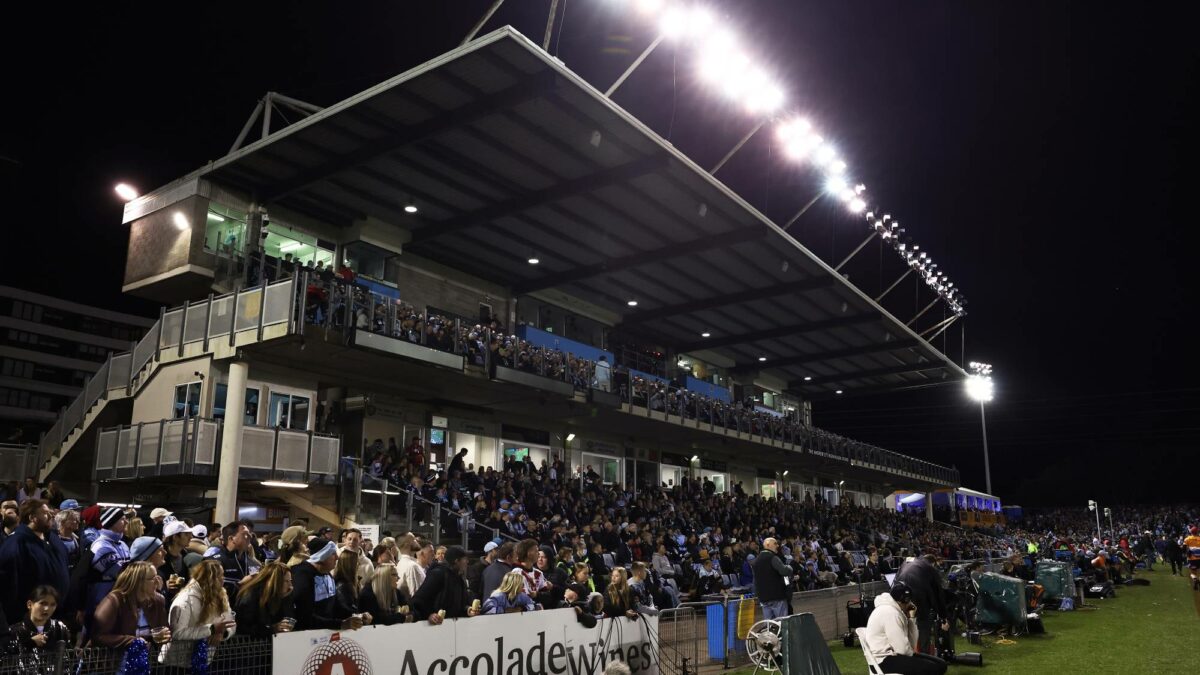
If you ever wonder why the National Rugby League is not truly national, this weekend’s venue debacle is a prime example of why the competition is still yet to shake off its suburban Sydney roots.
A casual fan who walks past a TV on Friday or Saturday night and sees the NRL qualifying final matches could be forgiven if they thought it was just another club game.
Penrith hosting Parramatta at BlueBet Stadium, Cronulla taking on the Cowboys at a reduced-capacity Shark Park.
Unless you’re aware of the ever-changing NRL finals stadium policy, it doesn’t particularly scream finals, does it?
CLICK HERE for a seven-day free trial to watch the NRL on KAYO
The NRL’s long-stated goal is to usurp the AFL as the No.1 sport in Australia but that is looking less and less likely.
Last week, the AFL hosted its first playoff round and after 35,000 witnessed the Lions beat Richmond at the Gabba, there was 78,000 at the MCG to see the Swans beat Melbourne, more than 91,000 at the same venue a day later when Geelong outlasted Collingwood and a few shy of 59,000 at Optus Stadium when Fremantle beat the Bulldogs.
Big stadiums, enormous crowds.
Rugby league has given up.
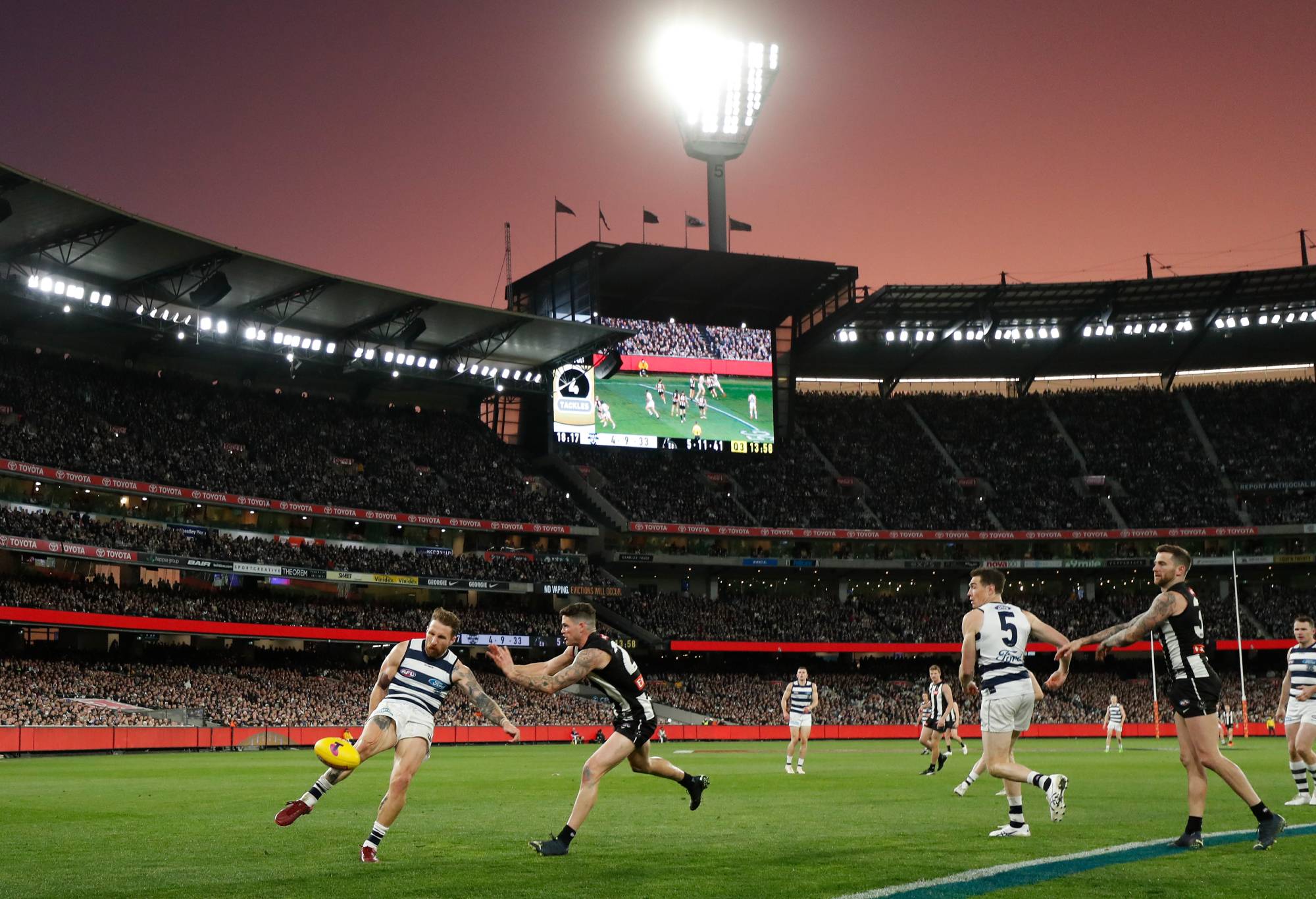
Geelong and Collingwood square off at a packed Melbourne Cricket Ground. (Photo by Michael Willson/AFL Photos via Getty Images)
The NRL allows clubs to play at their home ground rather than the purpose-built arenas like the relaunched Allianz Stadium for fear of TV cameras beaming a match back to loungerooms with more seats than fans in attendance.
Then we have the debacle that we saw on Monday morning when the NRL provided Rabbitohs fans with the wrong code to purchase seats, allowing the Roosters to get the jump on tickets for Allianz Stadium on Sunday.
At least that shows that there is a strong likelihood the match will be sold out.
Penrith’s clash against Parramatta in the first Qualifying Final on Friday night should be played at Accor Stadium.
It would be wrong to dictate that the Panthers, after winning the minor premiership, should take on the Eels at their western Sydney rivals’ home base of CommBank Stadium.
But even though BlueBet Stadium will be packed to its 20,000 capacity for Friday night’s clash, sparing the TV viewers the ghastly sight of vacant seats in their peripheral view, that is not better than a bigger crowd at the Olympic venue.
And if the NRL can’t get more than 20,000 to Accor Stadium for two western Sydney powerhouses squaring off in the finals, then that’s a sad state of affairs indeed.
As for Cronulla being allowed to play in front of around 12,000 spectators at the “ground under repair” PointsBet Stadium instead of the new venue at Moore Park, then that sums up the backward vision of the stadium policy more than anything.
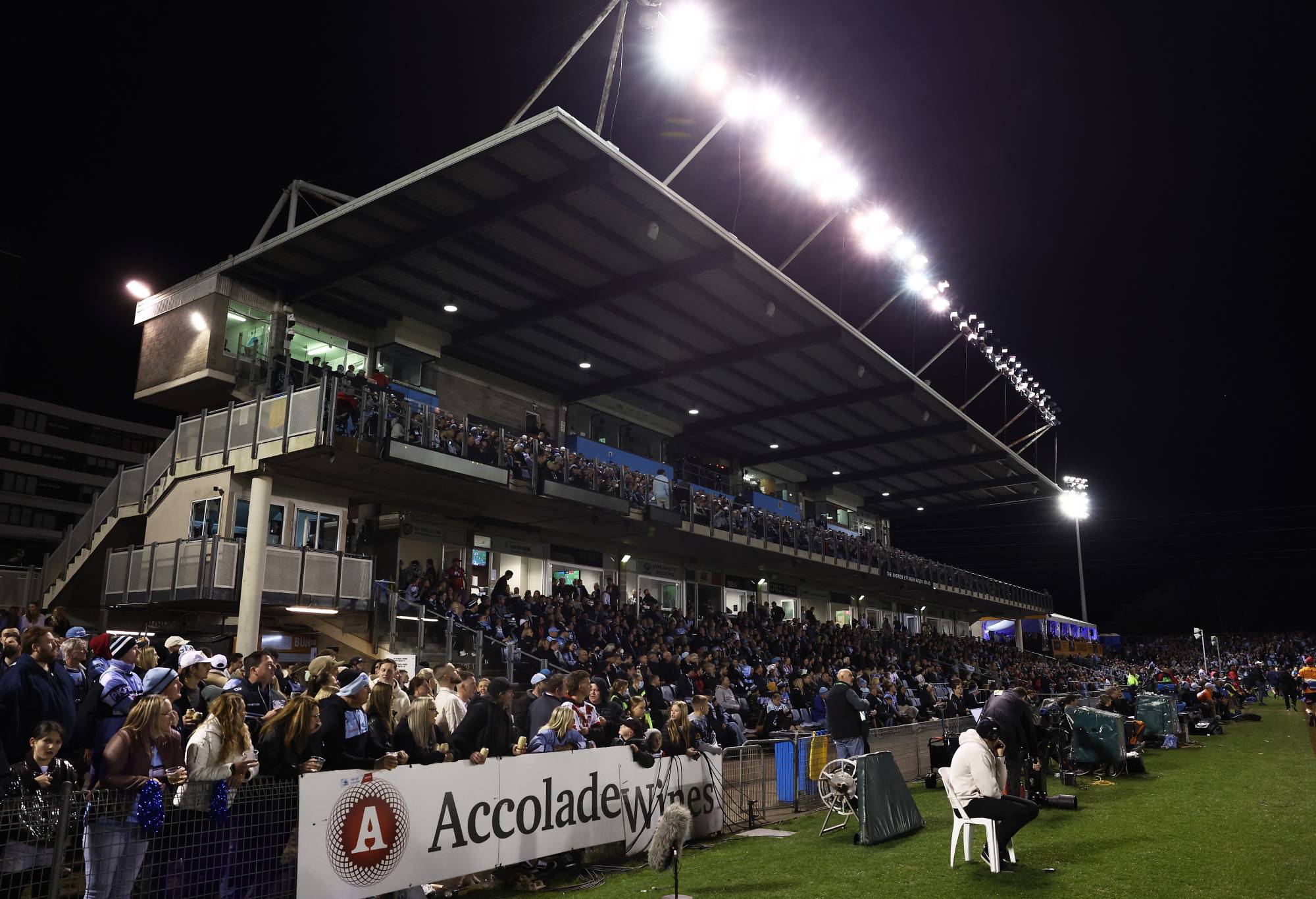
Cronulla’s PointsBet Stadium. (Photo by Matt King/Getty Images)
If the Sharks lose to the Cowboys and the Roosters beat the Rabbitohs, that would mean Cronulla would have hosting rights for a semi-final against the Tricolours for week two of the playoffs.
Would the NRL then say for this sudden-death match that Allianz Stadium has to be used, therefore making the higher-ranked Sharks “host” a match at the sparkly new home ground of their opponents?
If you ever wonder why the National Rugby League is not truly national, this weekend’s venue debacle is a prime example of why the competition is still yet to shake off its suburban Sydney roots.
Next year when the Dolphins spring up in Redcliffe as the NRL’s 17th team, it will be the first time in the premiership’s 115-year history that the majority of the competition will not be based in Sydney.
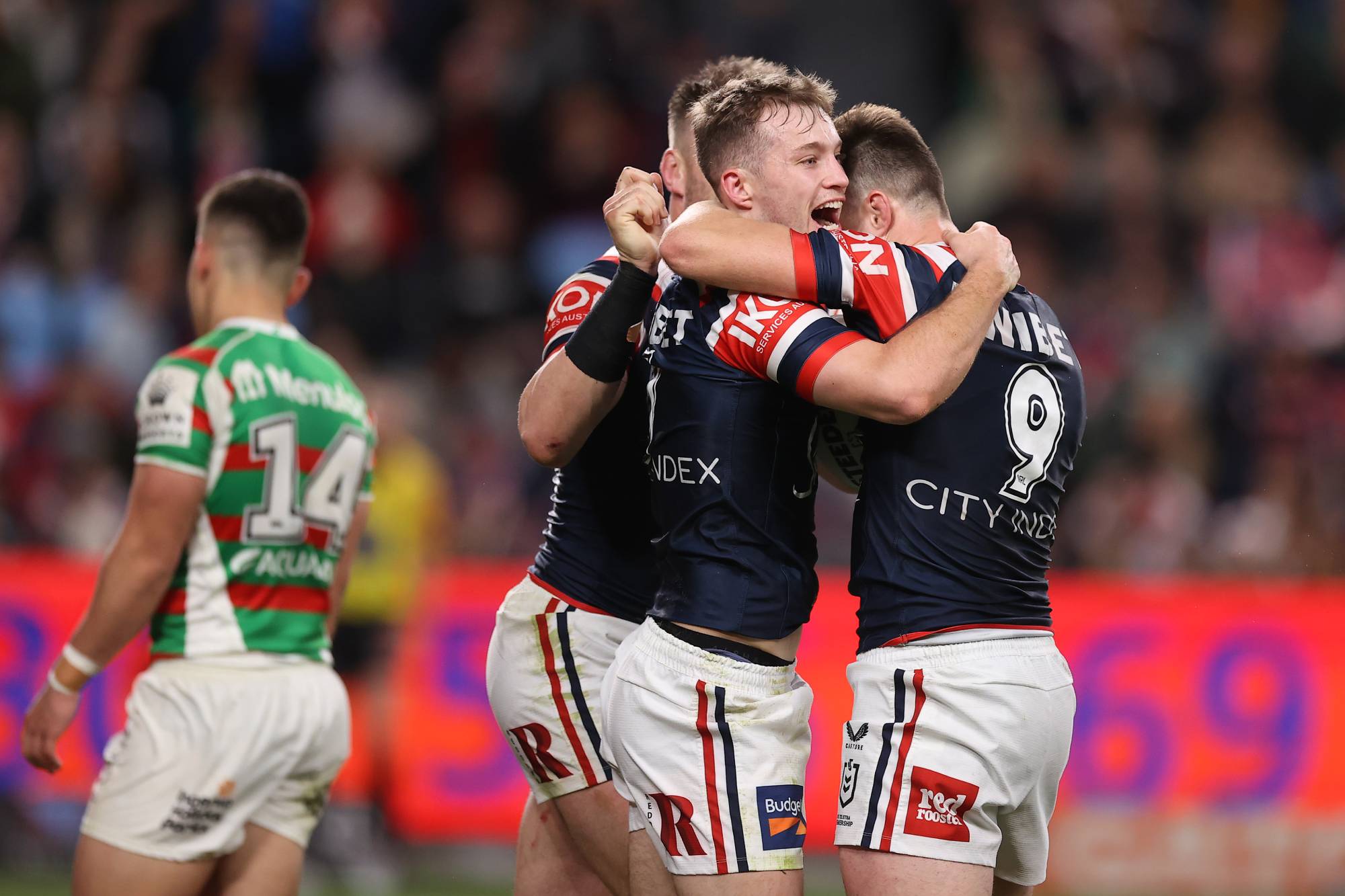
(Photo by Mark Kolbe/Getty Images)
There will be eight in Sydney with nine elsewhere – St George Illawarra play games out of Kogarah but the team trains in Wollongong and plans to build a Centre of Excellence in the city.
Even then there’s no guarantee the Grand Final will be played anywhere other than Sydney even though the ARL Commission claims it’s been dudded by the NSW Government. Surely, opening up hosting rights to the best offer anywhere in the country or even New Zealand is the best option for a competition that’s supposed to be national.
If and when the NRL expands to an 18th team, likely within the next few years, it simply has to head to Perth or Adelaide in a bid to expand its national footprint rather than installing another team in New Zealand or Australia’s Eastern Seaboard.
Look at the sponsors on the AFL and Big Bash League playing shirts over the past decade and you see more multinational conglomerates than in the NRL.
The reason is because they are truly national competitions where a sponsor can be sure their brand will be displayed throughout the country, not just to a few states because administrators are fearful of expanding into new territories.
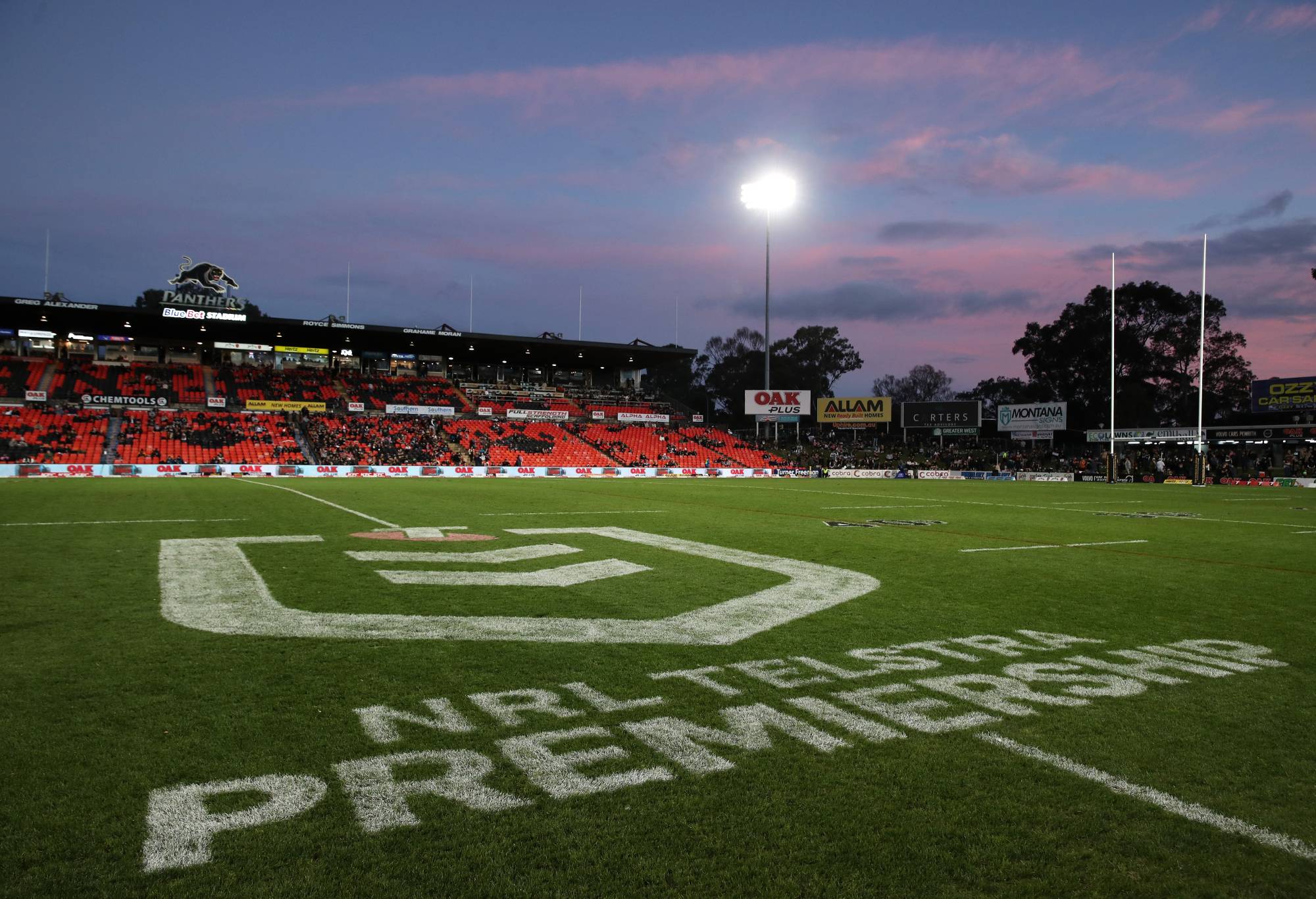
Penrith’s BlueBet Stadium. (Photo by Matt King/Getty Images)
Critics of a return to Perth or Adelaide will say that those markets were tried in the 1990s and it didn’t work. When the never-say-die cockroach that is rugby league almost ate itself to death during the Super League war, it’s amazing that more franchises didn’t die.
The Reds and Rams didn’t stand a chance when they went up against the self-interests of the ARL, Super League and the traditional Sydney clubs.
Rugby league will never dominate the AFL heartlands like Melbourne, Adelaide or Perth but through persistence, they can gain a foothold, like the Swans in Sydney and Lions in Brisbane – two relocated teams, which should also be an option the NRL considers as a few Sydney clubs struggle to remain competitive.
The finals should be the time when the NRL showcases its game to a wider audience – the eight best teams fighting it out in top-quality contests in front of heaving crowds at big stadiums.
But there’s a fair likelihood that the combined attendance of all four NRL finals matches will only just be higher than the crowd that packed the MCG for Geelong’s win over Collingwood.

Leave a Reply